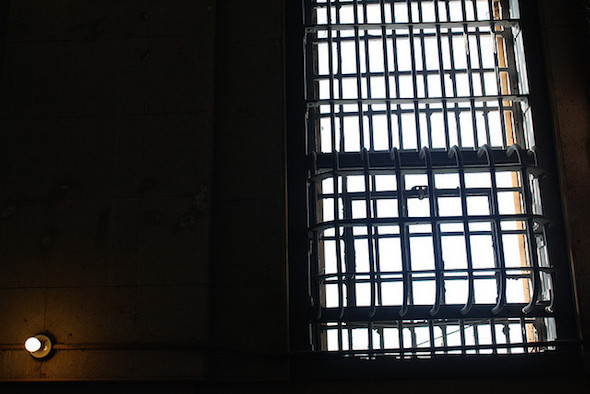Israel’s new law permits force-feeding of prisoners
The Knesset passed a contentious law on Thursday to permit the force-feeding of prisoners on hunger strikes, eliciting harsh criticism over the practice.
Medical organizations, including the Israeli Medical Association, have denounced force feedings as violating human rights and medical ethics. The law’s primary objective, said Dr. Eidelman-who in 2011 went on hunger strike as part of negotiations for better conditions at state Israeli hospitals-is not to preserve life but to defuse pressure on the government.
The law, which passed by 46 votes to 40, “will be used only if a doctor determines that the continued hunger strike will create an immediate risk to the life of a prisoner or long-term damage to his health”, David Amsalem of the ruling Likud party said.
“Unlike a criminal proceeding, administrative detention is not intended to punish the detainee for an offense that has been committed, but to prevent a future offense”, Israeli human rights group B’Tselem explains on its website.
The spokeswoman also told reporters there are now four “security prisoners” who had been on hunger strike for over a week.
Israel fears that a hunger-striking prisoner’s death could trigger unrest.
According to figures released by the Israel Prison Service earlier this year, 396 Palestinians, including one woman, were still being held in administrative detention at the end of March.
Hunger strikes have become an important form of protest for Palestinians detained in Israeli prisons.
Khader Adnan, a member of Palestinian Islamic Jihad, was freed from administrative detention this month two weeks after ending a 55-day hunger strike following an unspecified deal with the Israeli authorities.
Mr. Hadar added: “It can’t be a concept that all prisoners think the way to get out of prison is to hunger strike”.
“This law is a blight on Israel’s book of laws”, said Leonid Edelman, who chairs the Israel Medical Assn.
Israeli Prime Minister Benjamin Netanyahu last year noted the use of force-feeding at the Guantanamo prison to help make his case for swift passage of the bill. People held under administrative detention in Israel can be held for renewable six-month periods without charge.
Qadura Fares, chairman of the Palestinian Prisoners Society, called the law “ugly” and said it violated the prisoners’ rights to conduct a hunger strike.
“We must not reach a situation in which a prisoner who poses a public threat will be freed because the state did not have the ability to save him from death and is compelled to release him”, Erdan said.












